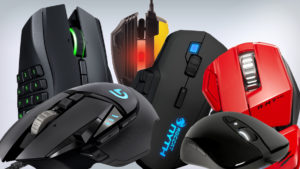Automated machine learning (AutoML) has introduced a new level of data processing to the business world. The retail industry is data-driven and has been using traditional analytics methods for several decades. The arrival of AutoML technology has opened new frontiers in how retail businesses identify co-relations and extract anomalies in data. Here we have discussed a few use cases of the AutoML and retail industry.
Make Stores Cashier-Free
The retail industry is resource-intensive, and it depends a lot on human involvement for efficient functioning. However, robotization can be brought in in certain store operations to reduce the number of human employees. Amazon is already offering check-out free stores where people can walk, shop, and walk out without waiting at the cashier counter to pay for the purchases; the money is deducted from their Amazon account.
Automated machine learning could use your mobile device as a tracker and identify your store behavior. It can record which sections you visited first and which next. The facial recognition technology could work with machine learning to identify high spenders and offer customized services. When you complete the purchase, the AutoML, combined with AI, could deduct the money from your account for the purchases without the need to go to the cashier.
Stock Visibility
The retail industry has few stock management solutions which tell how much is left in the stock and how much is sold for the day. No warehouse management solution can tell.
- How many exist in the system,
- How many exist in the warehouse physically,
- How many there should be for a particular item.
The current stock management system has no solutions to deal with theft, nor can it identify counting errors.
Restocking is an essential aspect of the retail industry to prevent loss of sale opportunities. AutoML could enable robots to go through aisles, check for products physically, and give you the correct count.
The retail store could fit the shopping carts with cameras that could identify the rack’s items as the customer moves ahead with the shopping cart. The store system could show advertisements to draw the attention of the customer towards a particular product.
Pricing Strategy
The right pricing strategy is an essential factor in the profitability of the retail industry. Today, the retail sector follows a dynamic pricing model in which different aspects determine the price. For example, the store system obtains pricing data from other platforms to decide the right price for a particular product.
AutoML can collect and analyze valuable data related to customer behavior. It can record and analyze the customer’s time on each page, including the browsing history. Based on customer surfing behavior, the store system can optimize prices for products that the customer is interested in buying.
Recommendation Engines
It is a common trend to use customer browsing history to make product recommendations. Many online retailers have implemented recommender systems on their portals. These systems pave the way to offer a personalized user experience and increase the likelihood of purchases.
AutoML can speed up a recommendation by analyzing past browsing data and helping the customers access products they are interested in. The store’s system could surprise customers with offers they can’t ignore. Many eCommerce companies also send links to the products with new offers through email. It eliminates the need to search for products.
Obtain Valuable Insights From Social Media Platforms
Social media platforms play an essential role in eCommerce. These platforms are more than networking platforms and used by customers to buy products. For example, many retailers use Instagram to showcase enticing photos of their products and offer a buying link.
AutoML can track and analyze information and customers’ flow on various channels and use that information to optimize product offerings and marketing campaigns.
To sum up, these are some of the ways AutoML is helping the retail industry.













